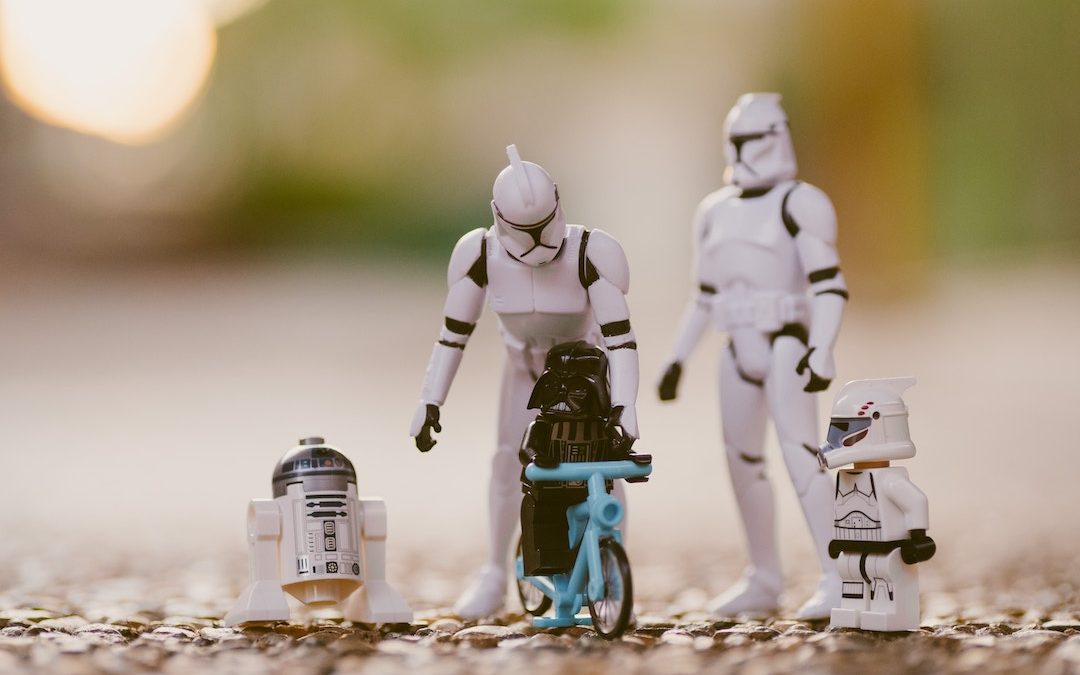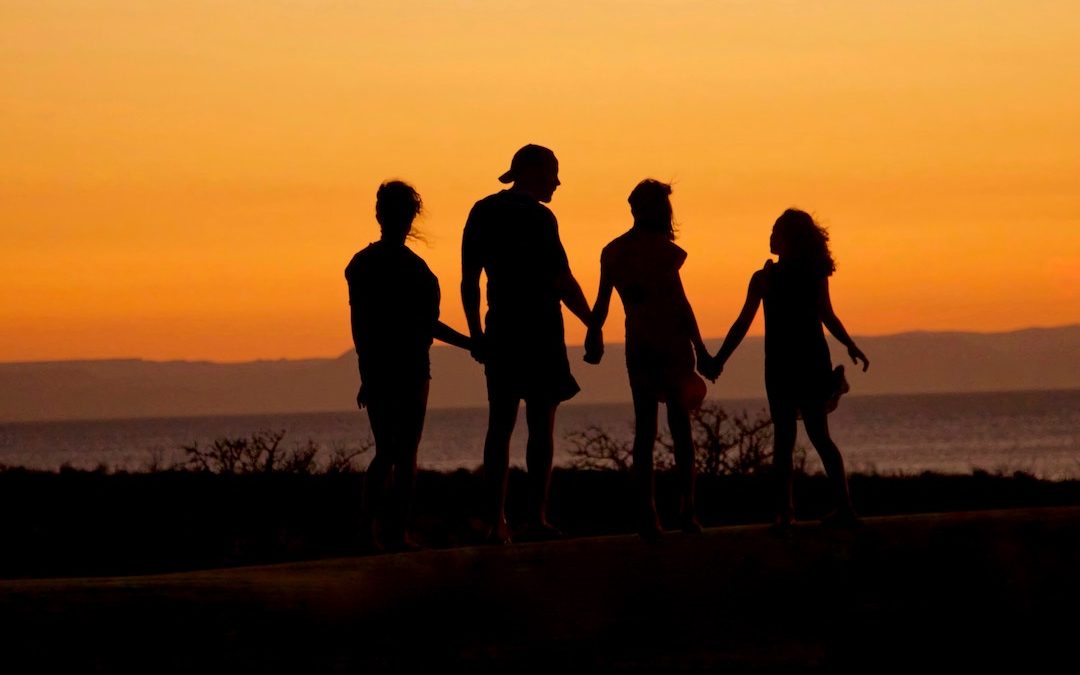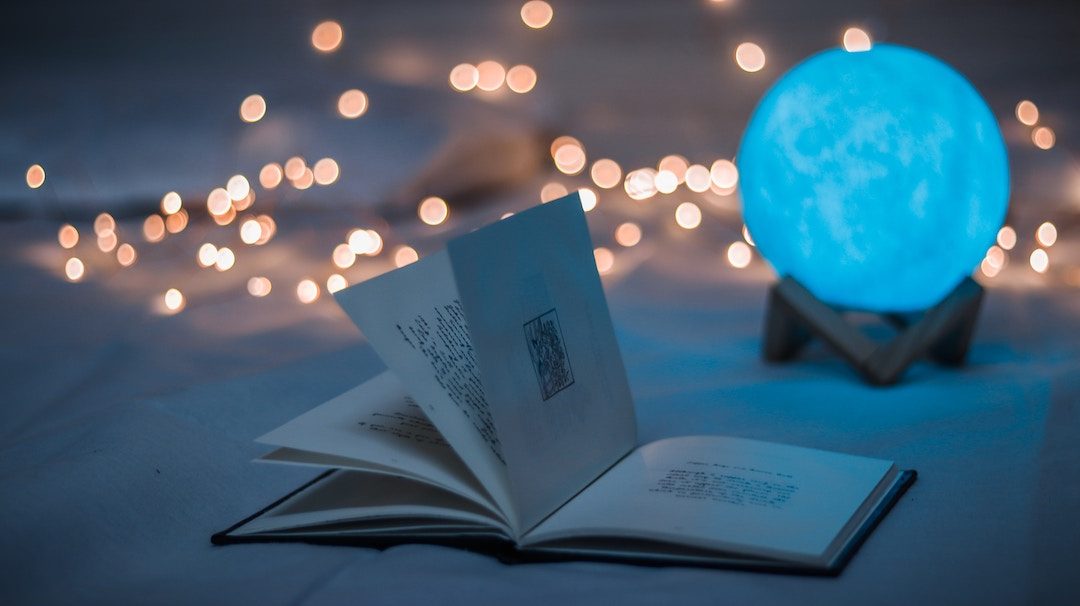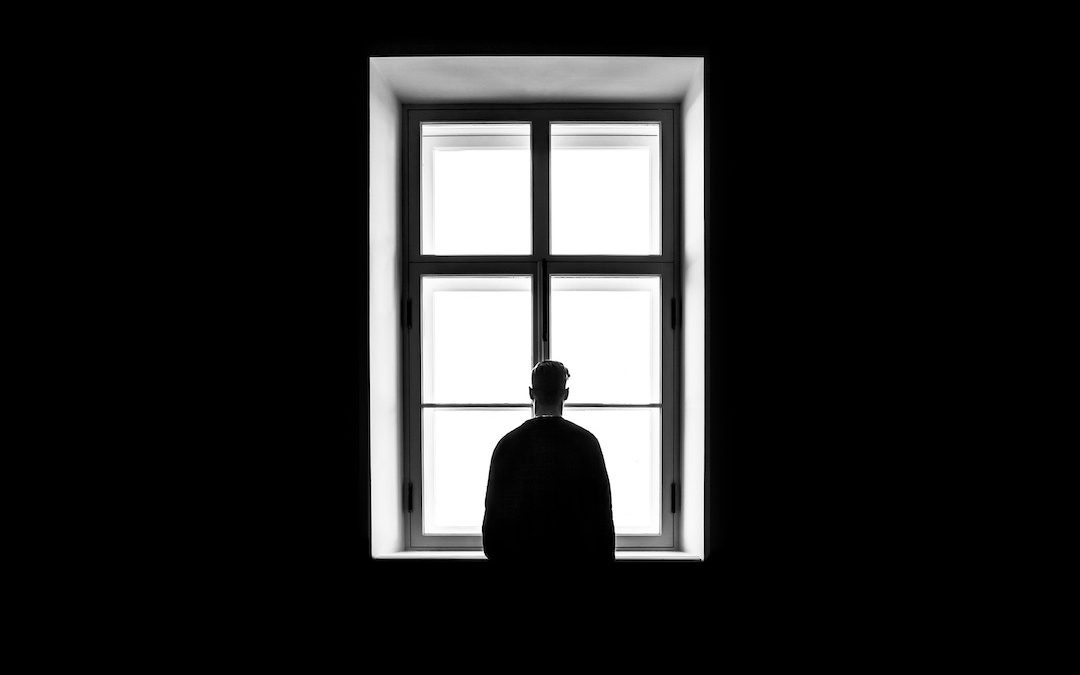
by Rachel Toalson | Poetry
crack it open
there are worlds within pages
adventures and mysteries
and the essence of life
contained in history, science, story
teaching, widening memory,
affirming identity, all gathered
in a single spine
in a small collection of paper
so when a day has given
all it can give and there is nothing
left to do or see or glean or learn or try,
there is still
the book.
This is an excerpt from Textbook of an Ordinary Life, Rachel’s fourth poetry book.
(Photo by Aaron Burden on Unsplash)

by Rachel Toalson | Wing Chair Musings
I was an avid reader as a child. My mother would take us to our county library that was a fifteen-minute drive down two highways, and I’d stack the books as high as I could carry and take them all home and read them in less than a week. I read every Ramona book, Anne of Green Gables book, Pippi Longstocking book, every book by Madeleine L’Engle and Scott O’Dell. I was an obsessive reader; when I discovered an author I loved, I read every single book they wrote, told everybody about the author, passed books along to friends, hoping they would enjoy them as much as I did.
So many books—or authors, rather—shaped me in my formative years.
Madeleine L’Engle: I loved the science in her books, seeing a strong female character take center stage, reading the compassion and love and truth that flowed through her stories. Later, in my adult years, I would finish everything she wrote, including her adult novels and her memoir series, The Crosswicks Journals.
Scott O’Dell: The history in his books captured me, along with so many of his strong female characters (in Sing Down the Moon, Island of the Blue Dolphins, and Streams to the River, River to the Sea, among so many others). I loved reading about the culture of Native Americans, lives that were far removed from my own (though my great-great-great grandmother was Choctaw—and one day I will write about her).
The Brontës: How I loved Emily and Charlotte Brontë, the dark Gothic world of Wuthering Heights, the tragic world of the governess. Looking back on these books, the women protagonists weren’t necessarily strong, but they did everything they could in their limited circumstances during a time when women were not allowed much freedom.
Jane Austin & Virginia Woolf: I loved how they defied convention directly (Woolf) and indirectly through humor and satire (Austen). Their books still hold an important place in my heart today.
L.M. Montgomery: I loved the spirit of Anne, the way she approached life with joy and gratitude, her quirkiness, and how she defied convention in a charming, innocent way. She was brave and wild and free. I read every one of her books, with a relish I still remember.
Lois Lowry: I loved her fantastical worlds, the characters who broke free from oppressive societies, the way they found their place through struggle and their own resilience. Their journey was like a metaphor for my own life, and their victories made my own seem possible.
Toni Morrison: I still, today, read and re-read Toni Morrison, but I first discovered her in high school and read her obsessively in college. I read her for her expert use of beautiful language, the literary quality of her books, the strange threads she wove together, what she could teach me about not only the black experience or the poor experience (this latter of which I was familiar), but also the human experience.
Books told me who I could be, showed me my potential, and taught me how to write. They certainly became part of my multitude. It’s a privilege to think that maybe I can be a small part of someone else’s multitude.
What are the books that shaped you?
(Photo by Ed Robertson on Unsplash)

by Rachel Toalson | Crash Test Parents
Husband and I have been eagerly awaiting the time when we will be able to leave our sons at home without parental supervision. The oldest just turned ten, but I’m thinking this rite of passage is still quite a way off. The other day, when he offered to watch his brothers for half an hour so Husband and I could go for a quick walk and I asked him what he would do with his brothers if we took him up on his offer, he said, “I’ll just lock the twins in their room and then no one else is really a problem.”
Clearly he doesn’t understand what “babysitting” means.
He’s a fairly responsible kid, but he’s not all that observant. If his attention is stolen by anything—a bird in the backyard that he wants to identify, an idea that he has to act on right this very minute, a really good book—then the entire rest of the world is left to its own devices. He becomes efficiently and completely immersed in his own world.
The thought of having some time away while this son watches his brothers is very tempting. We don’t get many date nights. And this kid is the one who once told my mother that he wished he could figure out how to clone Husband and me so that one set of us could watch him and his brothers while the other set got to go out on a date. He knows we’re starved for dates and time alone, and he’s sweet enough to care.
Still, I’m too smart to sign off on Temporary Head of Household just yet.
The problem isn’t really him, either. The problem is that all six of my children are BOYS. Husband had a brother. I’ve heard insane stories about what brothers do together, and this does not help my son’s case at all. My sister’s husband had a brother, and his stories are even worse than Husband’s. What their stories tell me (and what I know to be true already) is that the things boys do are impulsive and careless and, I hate to say—I really do—stupid. Every now and then Husband, my brother, or my brothers-in-law will provide me with a glimpse of the little boys who still live inside them.
Take the Fourth of July in 2011, for example. These fine grown men of my family—all of them fathers, mind you—decided that year that they would drop some cash on fireworks—but instead of setting the fireworks off at night, they would do it during the day, using a PVC pipe as a homemade bazooka. This ended almost as badly as you might imagine—a fire started in the field behind our home. Thankfully, my stepdad, at the time, was a volunteer firefighter, and he managed to get it under control before anybody else knew of their prank. I don’t think I’ve ever seen him move that fast before, and I’ve known him since I was twelve.
This is exactly what leads me to believe that it’s quite possible I will never be able to leave my sons home alone.
Recently I asked this question on social media: What age is old enough for children to stay home alone? I got a variety of answers. None of my friends had a definitive one, because it’s really up to the parents and the kids. I know this. I remember staying home alone when I was eight, my brother was nine, and my little sister was five—but I was an old woman trapped in a child’s body. Also, there was only one boy.
Here’s what I imagine would happen to my house if my sons stayed home alone for any amount of time:
1. Someone would surely get hurt.
This is because someone would most likely decide to do something ridiculous, like climb to the top of the deck covering, which isn’t as high as the roof, and jump off with a trash bag they still think can make them fly; that someone might break his leg. Or someone would decide it might be fun to sword fight with butcher knives, since Mama and Daddy have always forbidden it and they’re the worst parents ever and only want kids to not have any fun; this someone might have his nose lobbed off. Or someone else would try to walk on the roof with their roller blades strapped to their feet because the slope of it makes the perfect ramp. That someone might break every bone in his body.
Boys think they’re invincible. Especially when they’re alone with no parent to talk any sense into them.
2. All the food would vanish.
When my sons are home, the most frequent phrase I repeat, besides, “You’ve already asked that question and I’ve already answered it,” is, “Get out of the refrigerator.” I suspect that as soon as Husband and I were to walk out of sight or drive away (one day), our boys would immediately open up the fridge and binge on the rest of whatever’s there.
We’d likely either come home to a completely empty refrigerator or a bunch of boys in prone positions complaining their stomachs hurt because they ate ten pounds of bananas on a dare or they found my hidden chocolate reserves or they drank a whole gallon of milk to see who could drink it the fastest without puking out their insides—which is what the boys in my church youth group used to do for fun on the weekends. They always did it at night, when their milk vomit practically glowed in the dark. Night or day, it was still stupid.
You’ll notice a recurring theme here.
3. They’d fight and one would threaten to run away—and actually accomplish it.
Since this happens often when Husband and I are home, I imagine that the same would happen if we were away for any length of time. The missing variable is Parent, but if there’s a Substitute Parent, I foresee it still being a problem.
And my sons don’t just threaten to run away: they do.
We live in a relatively safe neighborhood, and they have friends living all around it, so when they say they’ll run away, they’ll usually just go hang out at a friend’s house up at the top of the cul-de-sac. They’re easy enough to find; I let them have their momentary victory while observing their imagined escape.
But when a brother is in charge, he would probably not be quite so inclined to watch and “find” his missing brother, since the impetus to running away was the fight they just had. Brother In Charge despises Brother Who Ran.
The problem is not so neatly resolved.
4. Something terrible would befall the house.
Everywhere my sons go in my house, they leave their marks behind. There are fingerprints on windows and holes in the walls and ski marks on the carpet (don’t ask). One of them the other day “accidentally” slammed the back door too hard, and a picture frame fell off the wall and shattered at his feet. He was shocked to know that he had such power.
Boys, as any parent knows, don’t think about the fact that if they climb onto a bookshelf full of books, it might actually fall over (if it’s not bolted to the wall—and sometimes even then). If they try to stack two chairs on top of each other, even when the makeshift “stool” is propped against a wall, they will still fall and, for their efforts, punch a new hole in the wall. If they try to do a pull-up on the open cabinet, that cabinet will rip from its hinges.
They don’t think about what they’re doing until there’s a gaping hollow in the door where they thought it would be funny to kick it closed. They don’t think about what they’re doing until there’s a shower curtain bent in two, because they wanted to see if it could actually support their weight. They don’t think about what they’re doing until the mirror is shattered in front of them because they thought it would be funny to throw a metal car at it.
Without parents at home, all my house’s protection vanishes.
If my sons were left alone, the chance that they would do something stupid and irresponsible increases, by default, by about one thousand percent.
Everybody knows that boys need the loving hand of a wise parent to keep them from doing something reckless. They only have the capacity to consider how cool the idea would be. You want to see what it would be like to jump from the roof to the trampoline? I’m game. You want to ride a skateboard down the stairs? Yep. Me too. You want to set off firecrackers from a PVC pipe? Let’s do it.
What could possibly go wrong?
Every now and then, my ten-year-old will try again. He’ll tell us to go ahead and go out on a date. He’ll take care of his brothers—for a price (ten dollars. He has a cheap going rate). We thank him for his kindness and consideration and politely decline for now.
And, possibly, forever (but I really hope not).
This is an excerpt from If These Walls Could Talk,the fifth book of humor essays in the Crash Test Parents series.
(Photo by Stephen Radford on Unsplash)

by Rachel Toalson | Wing Chair Musings
It’s time to go!
We were on our way out the door, running late as usual, because two of them couldn’t find their shoes. One of my least favorite activities, when we’re running late anywhere, is spending time on the Shoe Search—mostly because I can’t get deeply enough into my sons’ minds to imagine where they might have left their shoes. Where would I leave my shoes if I were, say, the four-year-old? No idea (They were under a towel in his older brother’s room, along with the swim trunks we couldn’t find last night).
We finally had everyone clothed and shoed and were now ushering them out to the car. We have only recently arrived at the stage where every kid can buckle himself and my husband and I can simply slide into our seats and go, provided everyone does buckle.
But my four-year-old was taking an unusually long time to actually get into the car. He is one of the most compliant children in the bunch, doesn’t fight us on most instructions, so I reminded him it was time to get in the car, come on, we were late.
“But look, Mama.” He pointed up to the sky, and I saw it: a rainbow. Two of them, really, one arcing over the other.
Maybe I would have seen it, eventually, once we got on our way. Maybe we would have driven right into it, maybe it would have been just as bright and magnificent, maybe we would have all shared that moment with a breath and an exclamation of awe. But who is to say? Maybe I would have, instead, been staring at the clock, lamenting about how we should have left half an hour ago, I hate being late, we better not miss anything important. It’s impossible to say which track my mind would have taken.
But what really mattered, in that moment, was to stop and stare and marvel—which I’m happy to say I did.
The bottom rainbow was glowing—you could see every color as though shaded with a marker. The top one was opaque but still colorful. The air smelled musty, like rain, and I felt a drop on my hand. But it didn’t matter—I remained, staring at beauty.
So much of my life is rushing between one thing and the next—finish the laundry before heading up to work in my bedroom, washing up the dishes before beginning story time, racing out to the car to beat the clock so we can make it on time to wherever we’re going.
How much do I miss in this constantly rushing state?
Fortunately, my children move at one speed: slow. That means they often require me to move slowly as well. And rather than be annoyed by that, I want to be glad.
So I picked up my four-year-old (he won’t be picked up for much longer), and we named the colors we could see: red, orange, yellow, green, blue, purple, pink. He laughed about how this is the same way he draws rainbows. I laughed about how he was right.
Everything else, for that moment in time, could wait.
(Photo by James Wainscoat on Unsplash)

by Rachel Toalson | Wing Chair Musings
I’ve started running again.
It began with a handful of miles—three or four, then quickly escalated to the six I used to run in college, when I would get up every day at five a.m. and run six miles before classes. My body remembers the routine; it’s moved back into the ridges carved out over four years of my past.
The running gives me a sense of control. There’s so much in my life that feels somewhat out of control, and it’s comforting to have that segment of time—an hour, maybe more—when I have almost complete control—over my breath, the distance I run, the speed with which I run it. I belong to myself, and my mind stills and it is only the steps, the breath, the path before me.
Running connects me fully to a moment, but it’s not only that mysterious connection that calls to me on the days I don’t schedule a run. It is the past, too.
For twelve years I have been a mother. I have given myself fully to my children. I have coaxed them through tantrums, taught them about emotions and how to read, aligned myself to their desires and needs so I can nurture and mold them into independent human beings who think and feel and decide for themselves. There is still a way to go; my oldest son is twelve, my youngest is four. They still need me, but in not quite the same way.
Two years ago, five years ago, it would have felt inconceivable to me that I would wake at five a.m. and spend an hour running six miles or more. The time to myself was short and stunted. If I had an hour to myself, I would not spend it running.
But time has widened now. There are moments when I find myself alone in my home library, when my sons are playing happily in the backyard and I can open a book and read a page or two without interruption. There are moments I realize I’ve been staring into space, daydreaming for half an hour and no one needed me. There are moments I can bookmark to run.
Maybe all this means I am losing part of myself—the part that was an ever-present, always-on-duty mother. My sons seek their father’s advice for things now, not just mine. But maybe it also means that I am gaining a part of myself, returning to a past me, remembering who I am, who I was—this person who looked forward to running six or more miles a day for the peace and quiet—the freedom—it gave her.

by Rachel Toalson | Wing Chair Musings
I’ve been feeling burned out lately. It’s a carryover from the end of the year, sliding into the new year, though I took two weeks off work to read and spend time with my kids and relax.
It’s not the work that has me so burned out; in fact, work, right now, feels like a necessary respite from the domestic world. It’s everything else—the lunches that need making, the house that needs tidying, the kids who need constant supervision.
I told my husband the other day that I almost feel like I can’t let our kids out of my sight, even though the oldest three are twelve, nine, and eight—ages at which I was already staying home alone. We live in a culture of fear—fear of what will happen to our kids if we take our eyes off them and fear of what will happen to us if other people see that we’ve taken our eyes off them. We’ve all heard the horror stories—parents (usually mothers) arrested for leaving their kid in the car for five minutes while they run into the store for some toilet paper or for letting their kid walk to or play in the park alone or for leaving them home alone while they run to the grocery store for an hour of blissful shopping. We are afraid, and so we protect from real (the repercussions of concerned citizens reporting on our perceived neglect) and imagined (child abduction, which is a percentage so low it would take leaving your kid alone for 750,000 years, according to some experts) dangers. At all hours. Every day.
Because of this, our kids don’t know how to be alone or how to care for themselves. My twelve-year-old didn’t even know how to make a pot of tea, and when, one day, he was feeling a little stuffy, he asked for some. I was busy getting breakfast on the table for his five brothers, so I told him to do it himself. He said, “But I don’t know how.”
Our kids, understandably, have trouble taking care of themselves in our overprotected world, so it’s no surprise that my most frequent burnout is parenting burnout. Mothering burnout. I feel exhausted often with what is required of me—keeping my sons out of trouble, monitoring technology time, encouraging creativity, teaching them to clean up after themselves. Making sure I don’t become a target for “concerned citizens” to call Child Protective Services.
The burnout isn’t completely caused by the protective requirement, of course. I do, after all, have six sons, and that means there are lots of needs around my house. But the break I might occasionally get from leaving my kids alone to go for a walk certainly contributes to my exhaustion.
So it was with this persistent and pervasive burnout that I began this year picking up the book, Wave, by Sonali Deraniyagala.
In this book, Deraniyagala loses her two sons—her husband and parents, too—in a tsunami while on vacation. The same things that, upon waking up, pull tight that slip of annoyance—shoes left in the middle of the floor, drawings littering the furniture in never-ending piles of paper, pleas for breakfast and complaints once it’s delivered—were things she would never experience again. She would not watch her sons navigate the explosive time of puberty, would not ever remind them to do their homework, would not break up another argument about something ridiculous.
When I finished the book, on a five-mile run on the treadmill in my garage, which doubles as my sons’ LEGO playroom, I stood there for a minute, my heart rate slowing, my breath evening, my eyes caught on the mess. What would I miss about my sons if the unthinkable happened? Everything.
I moved back into the kitchen, where my sons sat sipping smoothies, the noise at the table almost at an intolerable level. I kissed them each in turn as they swatted me away (“You’re so sweaty, Mama!) and smiled to myself, words thrumming through my head: I’m so glad they’re here.
Even the shoe I tripped over on my way upstairs couldn’t dampen the force of my gratitude and love.

by Rachel Toalson | Crash Test Parents
Everywhere I look—at least on the Internet—I see perfect parenting. There is proof of perfect parents on parenting blogs, forums, social media threads, anything that shines a light on the brilliance that is a parent who never fails to discipline, never wants to give up, never needs help, and always approaches their responsibility with perfect patience, perfect follow-through, perfect methodology.
On the other side of this spectrum, there is me.
I’ve been called an abomination to motherhood; an inexperienced, ugly mother of future criminals; and a helicopter parent, a permissive parent, a controlling parent, a no-control parent, a too-structured parent, a lackadaisical parent, a cares-too-little parent, and a cares-too-much parent (I should get an award for achieving every polar opposite there is in the parenting world). I’ve been told it’s a shame I have so many children to release into society when I am clearly so ridiculously inept at this motherhood thing. I’ve been told I should suck it up, get off my backside, and do society a favor so my kids are actually decent human beings.
People are astonishingly kind nowadays.
The Perfect Parents Club is a relatively difficult club to join. It doesn’t have any dues, but it does have some requirements, which include but are not limited to the following:
1. Memory loss.
When Perfect Parents say something like, “My kid never did anything like that,” you can rest assured that they are most likely suffering from memory loss. There is not a child on the planet who has not ever thrown some kind of temper tantrum (however wild or mild it may be), because every child has a mind of his or her own, and at some point in time, what a parent wants is going to come into direct conflict with what a child wants. It’s the thrill and magic of being human, of being completely different people with different ideas and different expectations. If a kid never talked back or asserted himself or herself, then there are bigger problems at stake. It means a kid is either afraid to state his or her opinions or they are so effectively brainwashed that they have no opinion at all.
I’d rather take the alternative: a kid who knows who he is and what he wants.
Fortunately, most parents who say “my kid never did that” are usually only suffering from a simple, reversible case of Memory Loss.
2. Denial.
Perfect Parents also must have a good grasp on denial when they read a story about a parent whose daughter refused to wear a certain color because of some inane reason known only to three-year-olds, because this is the exact right time when they must declare, with full conviction: “I would never have allowed my child to do that.” In this case, it’s not that our Perfect Parent has forgotten all the nonsensical things their kid ever did or said; it’s that their memories have been overlaid with a good film of Denial.
They never would have let their kid dance in rain puddles when they were instructed not to dance in rain puddles, they never would have turned the other cheek when their kid snuck an extra carrot or two for snack time, they never would have carried a boneless kid home from a park—they would have made that boneless kid walk.
A healthy sense of denial helps Perfect Parents reframe memories with better memories of kids who did what they were told all the time, never sassed, and never embarrassed them in front of other people. In other words, with a good dose of denial, real kids can become Perfect Kids.
3. A loud voice of judgment.
Perfect Parents like to weigh in on things like discipline and boundaries because they’ve forgotten that every child is different and they believe, since their child was perfect thanks to faulty memories and denial filters, that every kid who doesn’t behave perfectly must be the product of bad parenting. Our morals are failing. Our discipline is lax. Our world is going up in smoke; have you seen the kids of today?
They express this opinion loudly, every opportunity they have, making sure they point back to their perfect parenting abilities. Which leads me to:
4. An inflated sense of parenting abilities.
Perfect Parents mistakenly believe that the reason their children behave or behaved perfectly (at least in their memories) is because of their stellar parenting abilities. Some people have it, some people don’t. Whatever. The ones who complain about their kids’ behavior problems—or who, in my case, make fun of them; even worse!—should step up their parenting game.
Perfect Parents are more than happy to tell other parents how they should raise their kids, because they clearly have it all figured out; they’re doing everything exactly right.
They forget that children are people and that some parts of this behavior game are just the luck of the draw. I have six kids. Four of them argue about everything—and I mean, literally, everything. Two of them do everything we ask. We are the same parents to all. I’ll let you figure that one out on your own, Perfect Parents, but here’s a little hint: It has more to do with the kids than you’d like to admit.
5. Unconsciousness.
One thing that could be said for all of us is that we are all Perfect Parents—when we’re unconscious. I’m a Perfect Parent between the hours of 9 p.m. and 4:15 a.m., otherwise known as the hours I’m sleeping. Unless, of course, one of them wakes up.
Before I had kids, I thought I might have a slim shot at being a Perfect Parent, but my first kid was a creative and gifted one. The second was a compliant social one, the third was hard-headed, and the fourth and fifth were twins. Any notion of perfect parenting flew out the window the first time my creative son, at two, negotiated his first contract for a small business.
And now, so that I will never forget how imperfect my parenting was and is, I keep detailed records.
Perfect Parents are a figment of the imagination. The rest of us—the imperfect ones—can all rest easy.
After all, I’d rather be real than imaginary.
This is an excerpt from Hills I’ll Probably Lie Down On, the fourth book of humor essays in the Crash Test Parents series.

by Rachel Toalson | Crash Test Parents
One school morning, my third son woke up uncharacteristically cantankerous. This kid is generally like a grumpy bear in the mornings, but this particular morning he was more like a bear who’d been woken from hibernation three minutes before he was supposed to be woken. (I imagine that bear would be upset; I feel upset every time I wake up three minutes before my alarm goes off.)
He stalked around the house grumbling under his breath. I tried to listen, but I couldn’t quite make out anything of note. I assumed he’d feel better after breakfast, but he sat at the breakfast table and moped.
“Everything okay, baby?” I said.
He shook his head.
“Want to talk about it?”
He shook his head.
I try not to pry. I like to let them talk when they’re ready, but something was clearly bothering him, so I said, “You didn’t sleep all that well?” intending to utilize the process of elimination, which generally works for a seven-year-old.
“I slept just fine,” he said in decidedly snappy voice.
I cocked my head, squinted my eyes, stirred the oatmeal. Waited.
He said, “The tooth fairy didn’t leave me any money.” He held up something tiny. It was a tooth.
Oh, no.
I likely should have known, immediately, what was wrong; this is a standard happenstance in our home. Someone loses a tooth—someone is always losing a tooth, it seems—puts it under their pillow with high hopes for prosperity, and they wake up the next morning to nothing but the tooth.
The tooth fairy has been a bit flaky in our home.
Who would have ever thought the tooth fairy could be so complicated? I sure never did.
In our house, teeth fall out every other day (that’s a slight exaggeration—but only slight), but the tooth fairy very rarely visits.
There are a variety of reasons for this: She doesn’t carry cash, she’s much more forgetful than she used to be (she’s very old by now), and the tooth can’t always be found.
Husband and I always warn whichever boy has lost the tooth to leave it in a certain place where it will be easy to find when they go to bed and need to transfer it to the spot under their pillow. But the problem is that there is always an abundance of curious brothers manhandling that tooth with a bloody bit of root attached to it; they think it’s the most amazing thing. They don’t always remember to put it back where it was.
I’m convinced that someone in my house (certainly not the tooth fairy) has a tooth repository somewhere, and it likely looks like something out of a horror film. I haven’t found it yet, and I’m glad. Creepy kids.
The cost of teeth these days is incredible. It seems that inflation has ballooned the prize that kids expect to be waiting beneath their pillow when they wake after a visit from the tooth fairy. My sons come home talking about how the tooth fairy left twenty dollars under their friend’s pillow, and they’re all excited about this because they think it will happen to them, too. My poor kids don’t realize that there are different tooth fairies working the world and the tooth fairy assigned to our house does not leave twenty-dollar bills. She usually leaves an IOU—or nothing. So disappointing.
I’m pretty sure that some of my kids have prematurely stopped believing in the tooth fairy because of our shortcomings, but, well, what can you do. Parenting is hard even without all the required extras.
In the last four years, the tooth fairy assigned to our home has demonstrated some of her principles. You’ve already heard one of them: She doesn’t adjust much for inflation. Kids get five dollars for losing their first tooth (maybe) and a dollar every tooth after that. I’d say this is enough adjustment for inflation; I got a quarter for every tooth when I was a kid (and I tell my kids this every chance I get—they’re lucky). So even though a kid can’t buy much for a dollar, that’s as much as our tooth fairy will splurge. If my sons would actually save their dollars in a piggy bank or something, they’d have thirty-two dollars by the time it was all over.
The future, unfortunately, doesn’t mean that much to them yet.
The tooth fairy is also usually late. This is because she has a billion things going on in her house. She has kids she needs to send off to school, a house she needs to clean, clothes she needs to wash, work she needs to do, kids she needs to bathe and put down to bed, and, by the end of the evening, her brain and her body have been emptied out; not only does she not remember that someone lost a tooth, but she also has no energy left to lift herself from the bed, tiptoe down the hall, and slip a dollar underneath a pillow. Add to this exhaustion-complication the fact that the tooth fairy usually goes to bed before her older children do, so when would she sneak? True, she gets up at 4:15 every morning, but by that time she’s definitely forgotten that someone lost a tooth.
It really is a tragic circumstance.
When my sons wake on a morning after losing a tooth, they first check their pillow, to their great disappointment. They next come storming into our room or down the stairs, wherever Husband or I happen to be. They then posit that one of their brothers must have stolen the money the tooth fairy left under their pillow, because there was nothing this morning when they checked, after which Husband and I will exchange a look and one or the other of us will say, “She just added it to your allowance.”
“How much?” the boy will say.
We’ll shrug. “A dollar,” we’ll say.
If they complain, we remind them that the tooth fairy did say their daddy or I could take the dollar and use it for ourselves if the recipient was not grateful, after which they will zip their mouth closed and be, perhaps, marginally grateful for a dollar they didn’t have yesterday.
Husband and I don’t put too much pressure on ourselves to keep up this ruse; it is, after all, a ruse. One of these days our sons will know why the tooth fairy doesn’t always make it here on time. For now, we congratulate the son who’s lost a tooth, examine the one coming in, and bask in that adorable gap-toothed grin.
And, in the backs of our minds, we continue hoping that we never, ever stumble across that nightmare stash of lost teeth.
This is an excerpt from If These Walls Could Talk, the fifth book of humor essays in the Crash Test Parents series.

by Rachel Toalson | Poetry
the spiral sweeps you into
the middle of the bottomless ocean
you breathe
one two three
hold release again
the gloomy thoughts
clutter
you imagine traps
snagging them
carrying them into oblivion
The night gets
too dark
you turn on
the light.
This is how
you survive.
This is an excerpt from the book of poetry, this is how you live, available in both ebook and paperback form.

by Rachel Toalson | Wing Chair Musings
My grandmother used to save newspaper articles and clippings from Reader’s Digest (the large-print edition in later years) for the different people in her life. She’d hand me manila envelopes with cutouts paper-clipped together—about the lives of writers, the state of journalism, fitness for runners. She’d see something and investigate, or perhaps it was in the middle of reading that a family face would pop into her mind. Once she finished the piece, she would take the scissors and cut it out and store it away, until the next time she saw the person whose name she wrote on the tab in all capital letters.
I didn’t much understand this urge of hers when I was younger. The articles she passed along to me in clasped envelopes or manila folders seemed like random bits and nothing more. Sometimes they came, unexpectedly, in the mail. Sometimes she underlined things, highlighted sentences, wrote something in the margins. Most of the time she left it alone, and I had to decode what she was trying to say.
The other day I was reading a short article in National Geographic (National Geographic is to me what Reader’s Digest was to my grandmother) about a man who climbed a mountain without a rope. Free climbing is what they call it. While that part was interesting enough, it wasn’t what made me think of my husband. What made me think of my husband was the fact that someone filmed a documentary about this man’s climb.
My husband is a documentary filmmaker. The article included information about the equipment used for the filming (which my husband will often talk about, though I can’t usually follow), how he safely filmed the climb, and the number of hours required for preparation alone.
I dog-eared the page, thinking my husband would enjoy the article.
Later that night, when all the kids were finally in bed, I mentioned the article to my husband. He seemed lukewarm about it, much like I was back when my grandmother would hand me articles she’d saved for me. I handed it to him anyway, said, “I really think you’d enjoy it.” He set the magazine on his bedside table. It’ll take him months to read it—or maybe he’ll read it tomorrow.
Either way, I could imagine my grandmother, who’s been dead ten years, smiling, saying, “You see?”
And I do.











